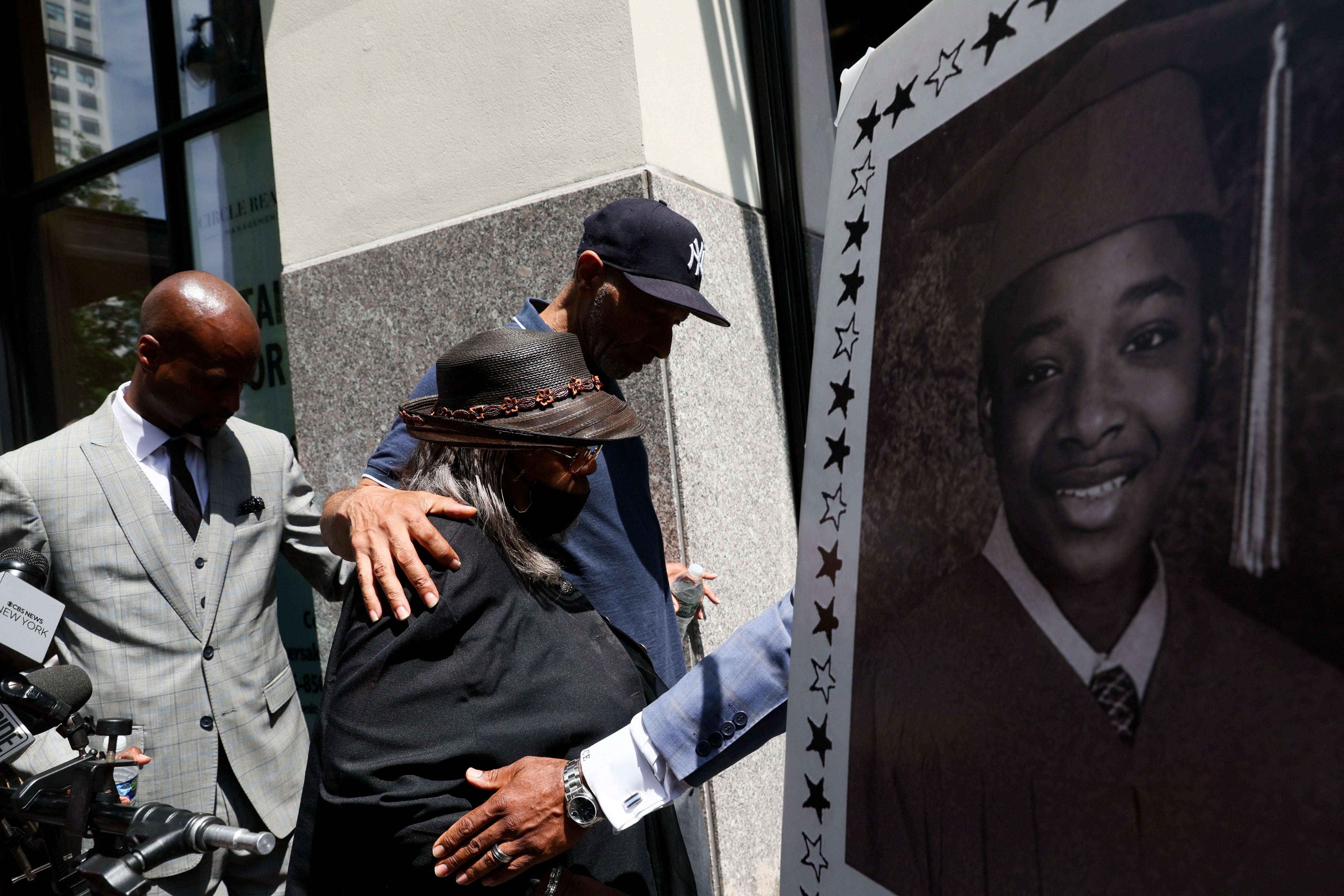Ex-Marine accused of killing homeless man in chokehold on New York subway train ‘went way too far,’ trial hears
Penny is charged with manslaughter and criminal negligent homicide
Opening statements began on Friday in the New York trial of Daniel Penny, 26, a former Marine who’s charged with manslaughter for spending minutes choking Jordan Neely, 30, a homeless man who was suffering from mental illness and threatening subway passengers in May 2023.
In a Manhattan courtroom, opposing sides of the case painted starkly different pictures, with the prosecution arguing Penny may have had understandable initial intentions to protect his fellow passengers, but took them “way too far” as he continued to wrap Neely in a chokehold after the man went unconscious and subway riders exited the train car.
“Mr. Penny was so reckless with Mr. Neely’s life because he didn’t recognize his humanity,” Manhattan Assistant District Attorney Dafna Yoran said in opening arguments, claiming Penny’s “indifference towards Mr. Neely, the man whose life he was literally holding in his hands, caused him to disregard the most basic precautions and needlessly kill him, long after any threat he had posed had already dissipated.”
Defense attorney Thomas Keniff, meanwhile, described Penny as a courageous citizen who “did for others what we would want someone to do for us.”
“That doesn’t have to make him a hero … it doesn’t make him a killer,” Kenniff said.
Penny is charged with manslaughter and criminal negligent homicide, and has pleaded not guilty.

The parties were similarly split over the nature of the chokehold in which Penny held Neely.
The defense argued that Penny, who had martial arts training, put the homeless man in “a variation of a nonlethal chokehold” and made “every conscious effort” to avoid killing him, while suggesting drugs in Neely’s system or a genetic risk of sickle cell could’ve contribued to the death.
Last May, the New York City medical examiner ruled Neely’s death a homicide with “compression of neck (chokehold)” as the cause.
Prosecutors, however, say the former Marine held Neely around the neck for nearly six minutes on the floor of the F train and should’ve known it could be deadly, especially once Neely went unconscious.
“A chokehold is only permitted when it’s absolutely necessary and only for as long as it’s absolutely necessary,” Yoran said.
The trial will center on analysis of bystander video of the incident.
The prosecution argues Penny approached Neely within 30 seconds of him entering the train car, while the defense says the former Marine had already been struggling for two minutes to restrain the homeless man before the video began.
The killing prompted outcry and a deeply split public response.

Some saw the incident, of a white man choking out a Black man with a long history of mental illness and homelessness, within the context of the city’s struggle to care for vulnerable residents, and within a legacy of excessive white vigilantism aimed towards Black people.
Others, meanwhile, viewed Penny as a hero and saw the incident as a sign of New York City’s struggles with public safety.
In the courtroom, Yoran noted that while many New Yorkers train themselves to ignore vulnerable people like Neely, the homeless man “demanded to be seen,” and spoke desperately about being hungry and thirsty between threats. The defense, for its part, said the man was “seething” and “psychotic,” alarming transit passengers.
In the gallery, Neely’s father Andre Zachery looked on.
If convicted, Penny could serve up to 15 years in prison.
New York City Eric Adams has made policing crime and safety incidents on the subway a priority, flooding the system with officers on foot, and controversially directing first responders to involuntarily hospitalise mentally ill New Yorkers regardless of whether they are believed to pose any danger to themselves or others.
Bookmark popover
Removed from bookmarks